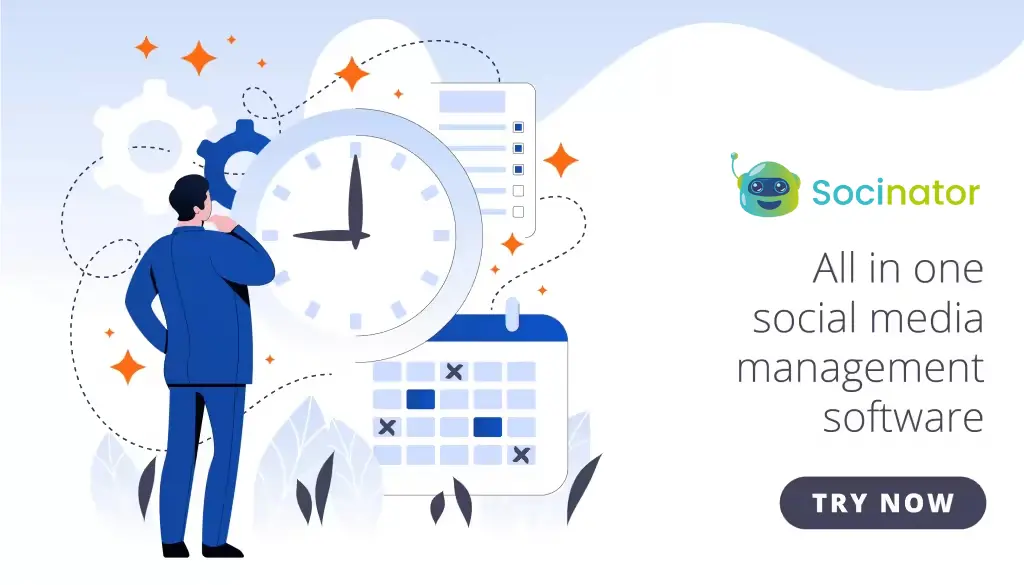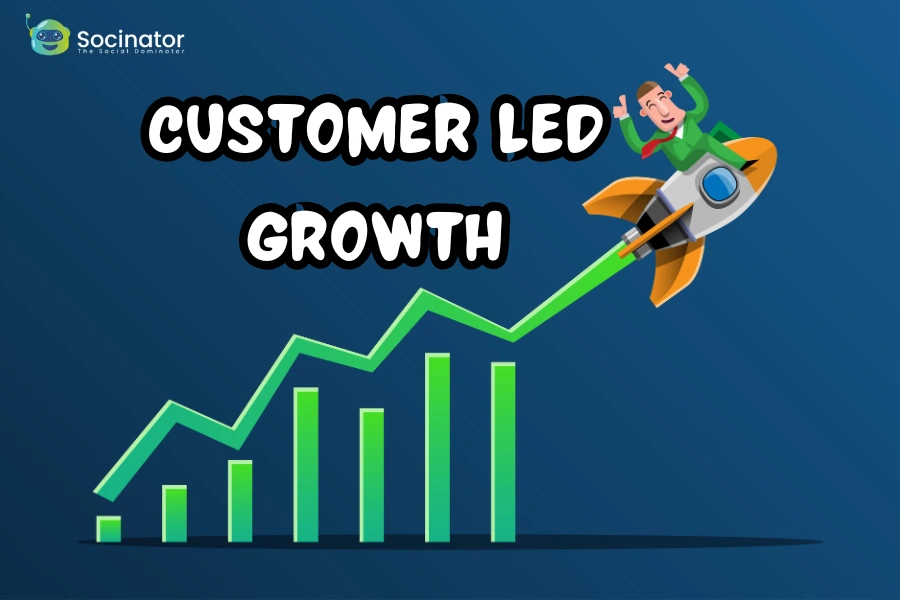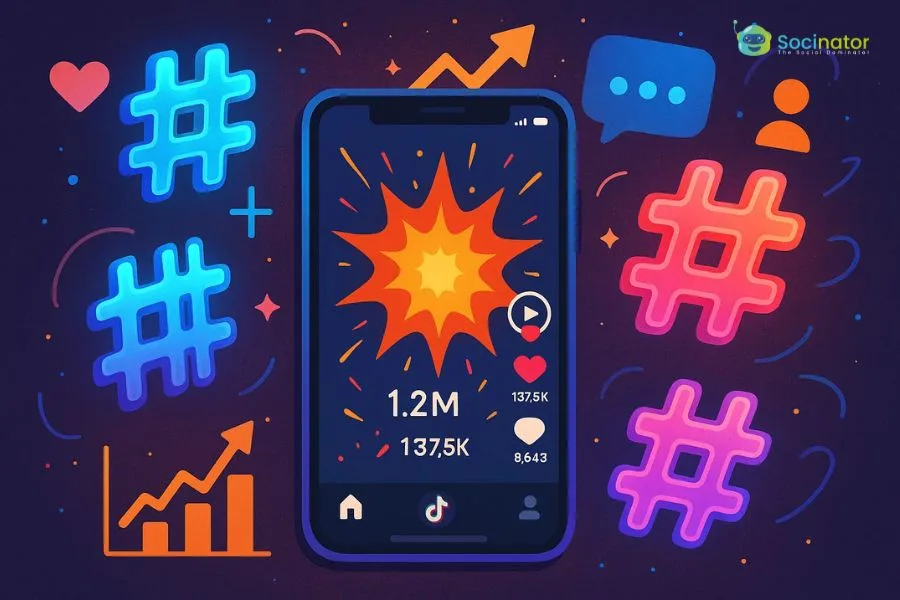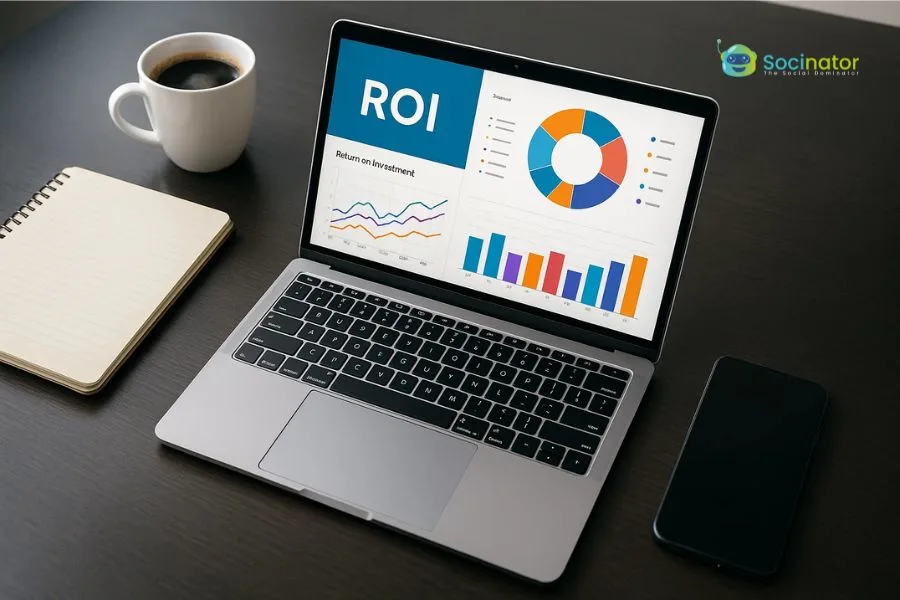Predicting buyer behavior is challenging, but brands strive to exceed expectations by adapting quickly. With reliable market and audience insights, businesses stay ahead in a dynamic market. Social media marketing, particularly in B2B, has simplified targeting and understanding audiences. B2B market research enables marketers to effectively analyze and engage their target market. Social-driven B2B market research insights help you quickly respond to market changes and make better decisions across your business.
According to a report, 95% of business leaders believe using social media data for informed decision-making beyond marketing is crucial. They use it to predict industry trends and solve customer problems, building trust and strengthening their company’s position in a competitive market.
This blog explores how B2B market research helps in better decision-making, including overlooked methods and social data to help you better understand your audience.
Hit ‘Play’ Button & Tune Into The Blog!
What Is B2B Market Research?
B2B market research is collecting data to understand what potential business customers need and want. This research covers various areas, including brand perception, product fit, customer service requirements, sales and marketing strategies, and more.
The process involves surveying a sample of your target audience to understand their motivations and preferences. By learning how your potential customers think, feel, and behave, you can plan more effectively to attract them.
Moreover, once you have them as customers, you can avoid creating an experience gap where their expectations aren’t met. This research also helps you predict future trends and address issues before they arise. This ensures a smoother and more successful business operation.
What Are The Types Of B2B Market Research?
Let’s delve into each of these B2B marketing research types:
B2B Buyer Persona Research:
Involves creating detailed profiles of your ideal B2B customers. It goes beyond basic demographic information to include job roles, pain points, goals, challenges, preferred communication channels, and decision-making processes. Understanding buyer personas helps tailor marketing strategies and messaging to resonate with your target audience.
B2B Buyer’s Journey Research:
This entails mapping out the various stages a B2B buyer goes through when making a purchase decision. It typically includes stages like awareness, consideration, evaluation, purchase, and post-purchase. Businesses can create targeted content and campaigns by understanding the buyer’s journey. It will help them to engage prospects at each stage and guide the audience toward conversion.B2B Competitive
Landscape Analysis:
This involves assessing the strengths, weaknesses, strategies, and market positioning of competitors within your industry. It helps businesses identify market gaps, differentiate themselves, and develop strategies to gain a competitive advantage.
B2B Market Opportunity Research:
Focuses on identifying and evaluating potential opportunities within the B2B market research. It includes analyzing market trends, emerging technologies, industry regulations, and customer needs to pinpoint areas where a business can capitalize and grow.
B2B Brand Research:
This encompasses understanding how your brand is perceived in the B2B market. It involves assessing brand awareness, reputation, credibility, and differentiation compared to competitors. B2B brand research, enhanced by using a social media automation tool like Socinator, helps businesses refine their branding strategies to better resonate with their target audience and build stronger relationships.
Each of these research types- plays a crucial role in informing B2B marketing strategies, guiding decision-making, and ultimately driving business growth.
What Are The Benefits Of Doing B2b Market Research?
1. Increased ROI: With solid business research, you can more effectively target customers and boost engagement with your brand. The more tailored your offerings are to their needs, the more they’ll spend with you.
2. Up-to-date insights on Customer Mindsets: Customer needs and desires can change quickly, and keeping up can be tricky. Relying on past behavior isn’t always accurate. B2B market research helps you stay on top of new developments and anticipate market changes.
3. Performance Monitoring: Regular feedback from potential or current customers allows you to adjust your approach to meet their needs and expectations. Instead of guessing your performance, you’ll have concrete evidence of your success or areas needing improvement.
After knowing about the benefits of B2B market research, it’s clear why most businesses invest heavily in it. As it can help them make data-driven decisions that help them drive growth for their business.
5 Innovative B2B Market Research Techniques
Here are some potent yet often overlooked B2B market research strategies:
1. Use B2B Keyword Research
Keyword research serves as a tactical approach in the early stages of the buyer journey, aimed at uncovering brands and businesses that align with a company’s needs. Notably, B2B buyer behavior is undergoing significant shifts in this realm. Recent reports indicate that B2B buyers increasingly turn to sources beyond vendors, particularly third-party resources, to inform their purchasing decisions.
This approach enables the delivery of hyper-relevant information to your target audience, enhancing brand visibility and attracting more marketing-qualified leads.
2. Analyzing Industry and Brand-Relevant Social Conversations
Delving into social listening data for industry and brand-related discussions yields valuable insights for B2B market research. This approach offers an insider’s perspective into customer opinions, experiences, and sentiments regarding your business. You can identify emerging topics, new trends, and evolving customer preferences by tapping into real-time trends and discussions.
Leveraging these insights allows you to align your content marketing strategy with ongoing discussions among your audience, enhancing engagement and refining your B2B social media strategy. Actively engaging in industry forums and thought leader groups provide firsthand insights into industry trends and the competitive landscape, fostering higher brand recall and enabling strategic adjustments to influence customer perceptions and mitigate attrition.
3. Examining Competitors on Social Media
Social listening offers a transparent window into how your target audience perceives your competitors. By analyzing conversations surrounding competitors, you can uncover their strengths and weaknesses, as well as your own, within context.
This detailed competitive intelligence is instrumental in fine-tuning your go-to-market strategy and refining your brand positioning. Moreover, it plays a pivotal role in content planning and shaping your broader marketing strategy by pinpointing topics that resonate—or fail to resonate with your ideal customers.
4. Delving into Ratings and Reviews
Traditional B2B market research methods, such as customer surveys and focus groups, often fall short in capturing real-time data compared to social insights, which offer instant feedback and insights.
Analyzing customer opinions in review forums allows you to move beyond conventional metrics like star ratings and Net Promoter Scores (NPS). By gathering qualitative data on customer pain points and what they appreciate about your brand, your team can proactively address their needs, fostering trust, engagement, and brand recall.
Your teams can sift through data on forums and review platforms like Reddit, G2, and Capterra to extract insights from unbiased ratings on user satisfaction, features, pricing, and other key factors. Additionally, app reviews offer valuable insights into how businesses utilize your software, informing the direction of your product.
5. Analyzing Industry Influencers
Analyzing their content offers a deeper understanding of your brand perception, competitive landscape, and emerging market needs. This research presents opportunities to collaborate with suitable influencers, amplifying your brand reach and credibility effectively. By aligning with the right influencers, you can enhance brand visibility and cultivate trust among your target audience, ultimately driving business growth.
Socinator: Social Media Automation
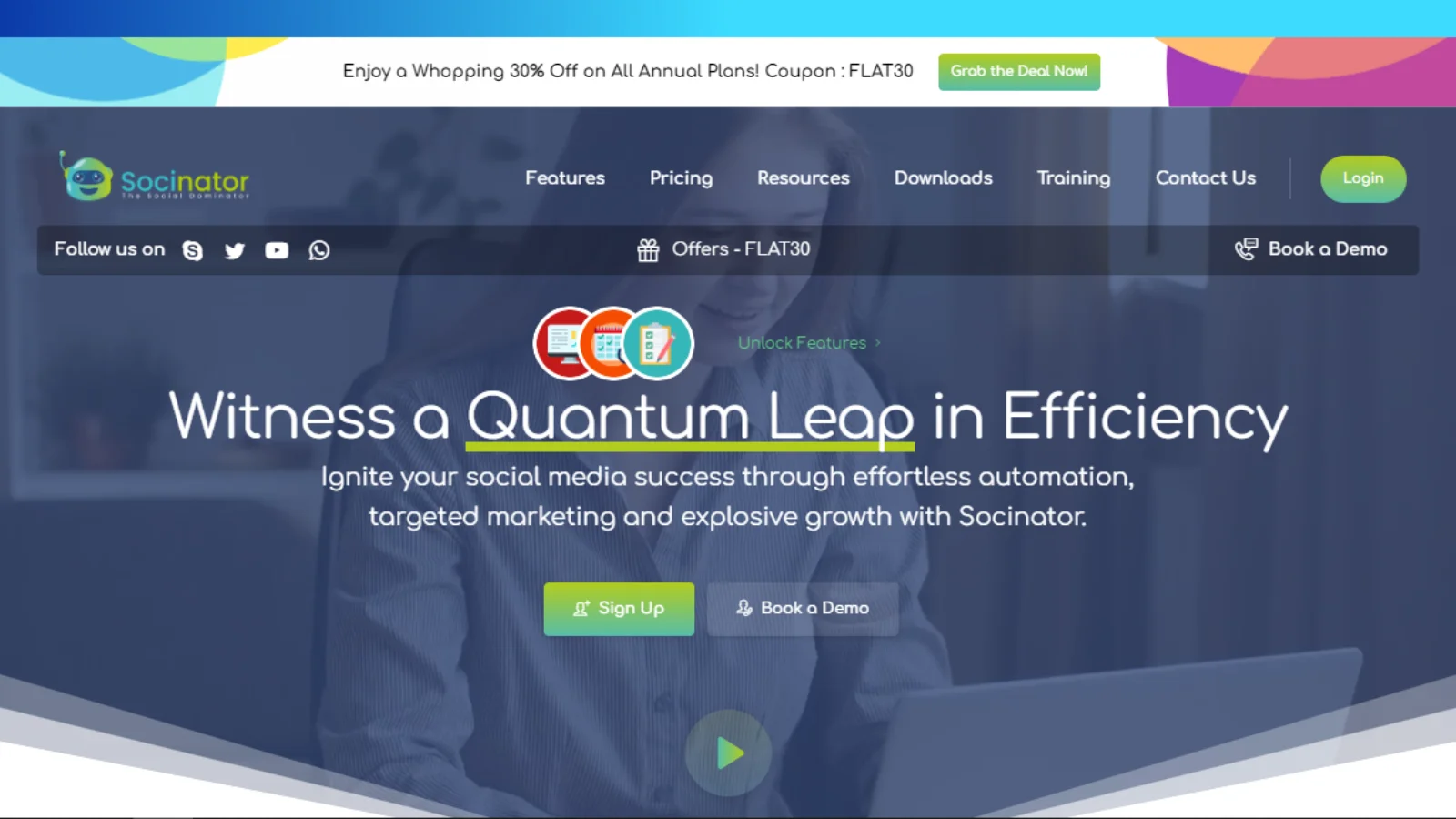 Socinator: Social Media Automation is a versatile platform designed to streamline social media management tasks. It offers users a centralized solution to efficiently handle their presence across multiple platforms. With its user-friendly interface and robust capabilities- it empowers individuals and businesses to optimize their social media strategies and achieve their marketing goals seamlessly.
Socinator: Social Media Automation is a versatile platform designed to streamline social media management tasks. It offers users a centralized solution to efficiently handle their presence across multiple platforms. With its user-friendly interface and robust capabilities- it empowers individuals and businesses to optimize their social media strategies and achieve their marketing goals seamlessly.
In the dynamic realm of B2B marketing, Socinator emerges as a multifaceted ally, seamlessly integrating its array of features to empower businesses in navigating the intricacies of the marketplace.
- Social Media Scheduling becomes a cornerstone, allowing strategic planning and timed dissemination of content tailored to engage key stakeholders and decision-makers.
- Content Management features facilitate the curation and organization of industry-relevant material, ensuring a cohesive narrative that resonates with the B2B audience’s interests and pain points.
- Audience Targeting capabilities enable precision in outreach efforts, enabling businesses to pinpoint and connect with prospects most likely to benefit from their products or services. Analytics and Insights serve as the compass, offering invaluable data-driven guidance by deciphering trends, measuring campaign efficacy, and identifying opportunities for optimization within the B2B landscape.
- Leveraging Automation Tools streamlines processes, from lead generation to customer relationship management, augmenting efficiency and scalability in B2B interactions.
- Moreover, Account Security safeguards sensitive information and preserves brand integrity, fostering trust and confidence among B2B partners. Collectively, these features fortify.
Socinator’s role as a strategic enabler equips businesses with the tools needed to thrive and succeed in the dynamic B2B marketplace.
Also Read:
Best B2b Marketing Automation Software For Small Business
Social Media Management 101: Best Guide For Beginners
How To Conduct B2B Market Research Using Social Media
Utilizing social media for B2B market research integrates both qualitative and quantitative approaches, encompassing surveys, interviews, customer data analysis, and industry monitoring. Social media-driven B2B research and analytics streamline these processes, offering cost-effective and time-efficient solutions to enhance marketing strategies, including customer care and brand management. A robust social media management solution facilitates the utilization of data, empowering businesses to leverage various research methods effectively.
Monitor market trends by tracking keywords and hashtags:
Social media platforms are rich sources of real-time data on emerging trends and discussions within your industry. By tracking relevant keywords and hashtags related to your products, services, or industry trends, you can gain insights into market sentiments, customer preferences, and emerging topics. It allows you to stay ahead of the curve, identify new opportunities, and adapt your marketing strategies accordingly.
Track B2B competitors across key performance indicators (KPIs):
Social media provides valuable insights into your competitors’ activities, content strategies, engagement levels, and audience demographics. By monitoring your competitors’ social media profiles and performance metrics, you can benchmark your performance, identify competitive strengths and weaknesses, and refine your marketing tactics to gain a competitive edge.
Analyze sentiment to improve customer experience:
Social media sentiment analysis involves assessing the tone and sentiment of conversations around your brand, products, or industry. By analyzing mentions, comments, and reviews, you can gauge customer satisfaction levels, identify pain points, and address issues proactively. It enables you to enhance the overall customer experience, build positive brand sentiment, and foster customer loyalty.
Identify influencers to build your brand:
Influencer marketing is a powerful strategy for B2B brands to reach and engage with their target audience. Social media platforms are home to influencers who have significant reach and credibility within specific industry niches. By identifying relevant influencers whose values align with your brand, you can leverage their authority and audience to amplify your message, increase brand visibility, and drive engagement.
Integrate social insights with your CRM data:
Integrating social media data with your Customer Relationship Management (CRM) system enables a holistic view of your customers’ interactions and preferences. By combining social insights with CRM data, you can create more personalized marketing campaigns, tailor messaging to specific audience segments, and improve lead generation and customer retention efforts. This integration also facilitates better tracking of social media ROI and overall marketing performance.
Leveraging social media for B2B market research empowers businesses to gain valuable insights, optimize strategies, and drive growth in today’s dynamic marketplace. By harnessing the power of social media-driven research and b2b customer analytics, companies can stay ahead of trends, understand their competitors, enhance customer experiences, leverage influencers, and integrate valuable data into their CRM systems. With these approaches, businesses can make informed decisions, maximize their marketing efforts, and achieve long-term success in the B2B landscape.
Wrapping Up
Harness the power of timely and targeted knowledge as the cornerstone of informed decision-making. Your social data is not merely information but a valuable resource that fuels innovation, propelling your business to greater heights. Leverage this treasure trove of market wisdom to drive continuous growth and mitigate challenges. Utilize precise, AI-driven intelligence to enhance customer-centricity and surpass market expectations. Empower your teams to seize timely opportunities and foster stronger partnerships across the organization with meticulously curated insights.
Moreover, incorporating cutting-edge tools like Socinator can further amplify your strategic approach. By integrating Socinator into your analytics framework- you gain access to advanced social media management capabilities. By harnessing Socinator’s capabilities, you can optimize your social media strategy, enhance customer engagement, and stay ahead of market trends with ease.




